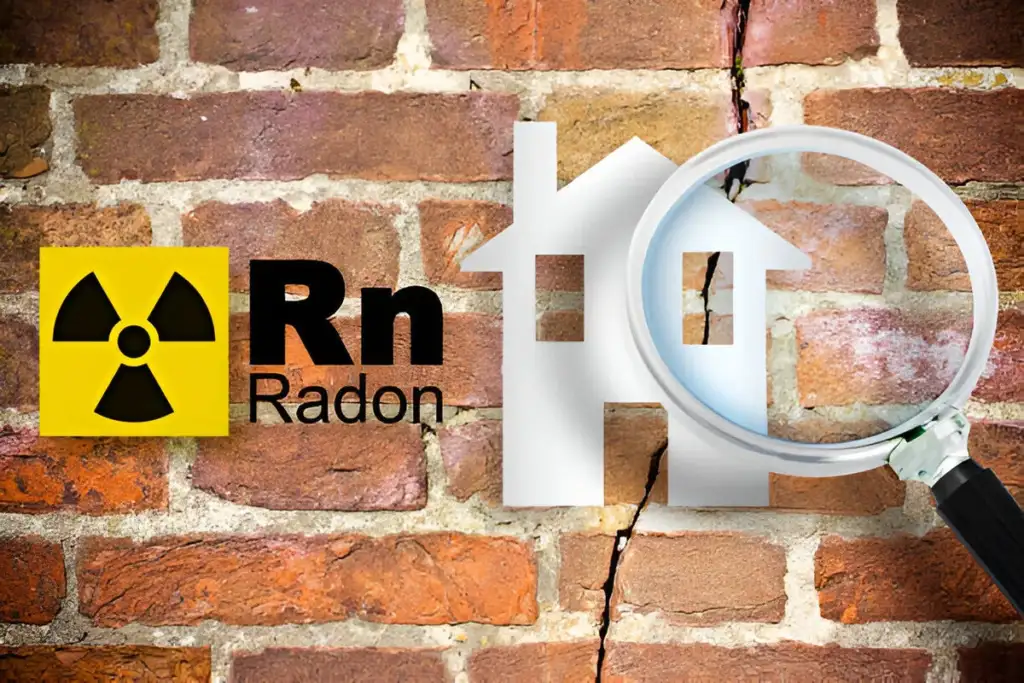Posts
How to Test Your Home for Radon?
What if we tell you that an invisible danger is seeping into your home, putting your family’s health at risk without you knowing? Well, you might be surprised, but it could be true. As reported by the EPA, one in five homes experiences radon issues and has radon levels above the recommended action level (4pCi/l).
However, if you live in Colorado, you are more at risk. Radon is a silent threat lurking in many Colorado homes, and you might not even be aware of it. It is the second leading cause of lung cancer among non-smokers in the US. Approximately 500 lung cancer deaths are annually reported in Colorado because of radon.
But why Colorado has more at stake? The reason is the state’s unique geology. This isn’t just an invisible, odorless gas or a distant concern here, but a pressing issue that can affect your family’s health and safety.
Don’t worry; you can still protect your loved ones from this hidden danger by conducting a radon test. This blog will discuss how to test for radon in house.
So, without further ado, let’s start.

How Do You Check for Radon in Your Home?
To check for radon in your Colorado home, you need to follow different steps that we have summarized below:
Choose the Right Test Kit
The very first thing you need to do is select an EPA-approved radon test kit. Considering Colorado is more at radon risk, it is better to get a short-term test. This will give you quick results and let you handle the issue smartly. However, for more accurate results, you can choose the long-term test.
You can find these kits easily at any hardware store near your house.
Pick the Right Time and Place
Radon levels are expected to be higher in colder months. This is why it is better to test for radon during winter when the doors and windows are closed and the gas is trapped inside. You need to place the kit in the lowest livable area of your home, like a basement or ground floor.
Tip: Avoid placing the kit in bathrooms and kitchens, as the humidity and damp conditions there might skew the results.
Follow the Instructions Carefully
The manufacturer’s instructions come with every test kit. You need to follow those and make sure the test area is not disturbed during the testing period. This is very important for accurate readings, especially when Colorado’s weather and air pressure vary a lot.
Send the Kit for Analysis
Once the testing period is complete, you need to seal the kit and send it to the designated lab for analysis. The geological conditions in Colorado can lead to fluctuating radon levels. This is why, an analysis will help you determine whether your home is safe limits or radon mitigation is needed.
How Long Does A Radon Test Take?
A radon test can take 2 days, 90 days, or even a year; it all depends on the type of test you choose.
Let’s break down the time for each below:
Short-Term Tests
As the name suggests, these tests usually take a couple of days to a week to complete. As we stated earlier, it is better to conduct short-term tests in winter, as this will give more accurate readings than in summers.
Long-Term Tests
If you want a more comprehensive understanding of your home’s radon levels, you should conduct a long-term test. These tests take around 90 days to a year. We would suggest getting a long-term test as radon levels in Colorado can fluctuate due to seasonal changes and varying weather conditions.
What is the Best Way to Test for Radon?
The best way to test for radon in your Colorado home is to hire a professional radon testing service. Yes, DIY kits do seem tempting, but they only provide a basic understanding of the issue within your home. With a professional test, you will get a higher level of accuracy and reliability.
During the professional radon test, certified professionals use advanced equipment to measure radon levels precisely. They usually conduct short-term and long-term tests to give a comprehensive view of your home’s radon exposure. Besides this, they can provide expert guidance on mitigation options if they find elevated radon levels in your home.
When to Get Radon Testing?
Here are some of the instances when getting a radon test is a smart move:
Recent Home Renovations
If you have recently renovated or remodeled your Colorado home, particularly the basement or foundation, it’s better to conduct radon testing. This is because structural changes can alter how radon gas can enter your home.
Long-Term Residency
If you have been living in your home for several years without a radon test, it’s time to check for radon. Over time, radon levels can change due to shifting soil and other environmental factors.
Buying or Selling a Home
Whether you’re buying or selling, it is important to get a radon test done. This is because high radon levels can impact a home’s value and are often a point of concern during real estate transactions in Colorado.
Presence of Crawl Spaces
If you own a house with a crawl space or plan to buy one, a radon test is a must. These spaces are more susceptible to letting radon gas enter. In fact, if you end up buying a home with a crawl space, getting a radon test regularly is highly recommended.
Health Concerns
If anyone in your house has developed respiratory issues, especially lung-related conditions, it might be linked to radon exposure. It is very important to get your home tested, as radon could be the cause of all the health issues.
Conclusion
Radon may be an invisible and silent threat, but it can be effectively managed with the right precautions. By staying vigilant and regularly testing your Colorado home for radon, you can protect your family from the serious health risks this gas poses.
Whether you’re a long-time resident, recently renovated your home, or are buying or selling a home, radon testing is crucial in ensuring a safe living environment.
Don’t leave your family’s health to chance—take action today by testing for radon and addressing any elevated levels with professional mitigation. Your home should be a place of comfort and safety, and with proper radon management, you can ensure it remains that way.
Ensure your Colorado home is safe from the invisible threat of radon with GreenWorks Inspections. Our certified professionals provide accurate and reliable radon testing services, using advanced equipment to detect even the smallest traces of radon gas. Don’t wait until it’s too late—schedule your radon test with GreenWorks Inspections today and protect your family’s health. Peace of mind is just a call away!



